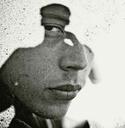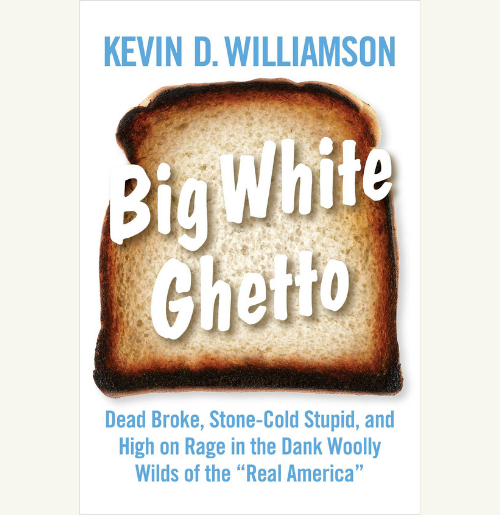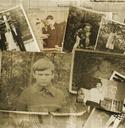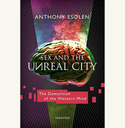Kevin Williamson,
Big White Ghetto: Dead Broke, Stone-Cold Stupid, and High on Rage in the Dank Woolly Wilds of the “Real America”
(Regnery, 2020).
If you are looking for a delicate exposition of the rich cultural veins that underlie identity in America, this is not the book for you. Kevin Williamson argues those have withered away. Take his account of life in the mountains of Kentucky: "This is not the land of moonshine and hill lore, but of families of four clutching $40 of lotto scratchers and crushing the springs on their beaten-down Camry while getting dinner from a Phillips 66 station." In Big White Ghetto, there is plenty more where that came from.
To read Big White Ghetto is to take a trip through the dingy and cringey parts of America with an acerbic commentator who grants no quarter. The bookfeatures twenty-two essays first published in the conservative editorial magazine National Review from 2008 to 2020. Topics are wide-ranging: economy and addiction in Kentucky’s poorest counties; young, extremist politics of the right and left in Dallas and Oregon; heavy industry in the oilfields of Texas and the fracking hills of Pennsylvania; gambling in Atlantic City; and the obscene pornography conferences in Las Vegas.
Williamson provides a bitter antidote to simplistic but poisonous political narratives that classify those outside the cosmopolitan urban elite either as deplorables or misunderstood victims.
By Williamson’s estimation, the "identity” that manifests throughout America’s fringes is a sham attempt to create meaning out of nothing. True sources of identity such as love of home and family, historical awareness, or charitable self-sacrifice are now the exception. Much of Williamson’s scorn is directed towards political activists on both the right and left, in addition to those who center their lives around manufactured identities. A meaningful life, writes Williamson, is hard-earned and achieved only through dedication, hard work, and intelligence. Political feuds, conspiracy theories, and cult hedonism can provide no basis for genuine identity, validation, or purpose because they promise recognition and exaltation without requiring any real effort. Williamson’s argument is that most contemporary forms of “identity” are merely psychological consumer products, optimized for sale to a class of degenerates who want a painless, immediate source of gratification. Two discomfiting essays, “Among the Flat-Earthers” and “Topless Chick, Uncredited,” illustrate how conspiracy peddlers and pornographers willingly indulge identity-seekers for a profit.
In “Der Apfelstrudelführers,” Williamson characterizes “alt-right” politics as a haven for embittered, emasculated man-children. He presents a damning picture of men who hope that committing themselves to white identity politics will finally earn them respect and admiration from their peers, especially from women. Williamson mocks their lonely refrains on internet message boards and goes so far as to compare them to jihadists in search of divinely guaranteed sexual gratification. While their purported goal is to find meaning in the politics of white identity, Williamson illustrates how men of the alt-right are just as much failures of the modern world, obsessed with a love they feel they are owed.
Williamson similarly lampoons radical leftist politics as its own kind of loneliness-induced revenge fantasy. In the essay “Adventures in National Socialism,” he interviews a Bernie Sanders groupie who cannot explain her politics without expressing her unresolved grievances against her parents. Williamson brands her “a classic American radical, which is to say, a wounded teenager in an adult’s body.” Writing on leftist protesters harassing random passersby in Portland, Williamson describes their city-sanctioned, police-protected activities as an opportunity for affluent, white liberals to play-act heroically driving out fascist demons, calling them “little runts who make pretty good thugs when confronted with people in wheelchairs or little old ladies.”
Sympathy plays no role in Williamson’s worldview, which appears to be formed by a whole-of-life libertarianism. Little discussion is given to the culture that produces so many pitiful individuals or the insipid philosophy of life that deprives them of the moral resources to understand their condition. Williamson goes for the throat, but it is often unclear whether this aggression offers anything more than brutal entertainment. Obviously, young people cursing furiously at bewildered bystanders are working through their own personal issues. No one thinks for a second that those attending pornography conventions are happy with their lives.
In Williamson’s eyes, group identity is only a minor part of a well-functioning community. An individuals’ work ethic and willingness to respond unflinchingly to economic realities are far more important. To be useful, identity must be connected with responsibility and action. Williamson upholds the Scott family of Valley Spring, South Dakota—the fourth and fifth generation to farm their family land—as a prime example. The Scotts invest time and effort in their community, sustaining “a vibrant little city, one of those midwestern gems such as Kansas City and Grand Rapids that punch above their weight.” But farming, like many other activities, is subject to market forces beyond a single community’s control. Kevin Scott and his fellow farmers’ survival hinges on global market prices for corn and soybeans, which requires Scott to lobby Washington for international trade policies completely contrary to an “America First” approach. In a complicated, interconnected world, local culture and identity cannot survive without being first informed by market realities. Even though South Dakotan farmers are generally staunch, Trump-supporting conservatives, they are willing to move beyond puerile identity-based ideologies to protect their way of life.
Occasionally the market renders local industries defunct and people must move to other opportunities. In the essays “Big White Ghetto” and “White Trash Receptacle,” Williamson offers no sympathy to the poorer inhabitants of Kentucky who watch as economic opportunities disappear and choose to live on government benefits rather than take charge of their lives and move on. Williamson also has little patience for apologists of the white American underclass who argue that the rural poor are victims of the elite. He condemns such arguments as self-serving “sanctimony,” pointing out that the problems of poor America are both economic and moral. “The white American underclass is in thrall to a vicious, selfish culture whose main products are misery and used heroin needles . . . What they need isn’t analgesics, literal or political. They need real opportunity, which means that they need real change, which means that they need U-Haul.” Those who choose to stay and participate in broken local economies where people launder food stamps for drug money (an economy he describes in “Big White Ghetto”) get no sympathy at all.
Perhaps most frustrating is Williamson’s disinterest with those working to improve life in towns left behind by industry. The essay “Big White Ghetto” devotes only one short paragraph to the people maintaining the quality of life in Booneville, Kentucky, preferring instead to focus on the derelict and drug-addicted population. He refuses to acknowledge that some people could rationally choose to live in less-than-ideal economic circumstances out of an appreciation for place or home, or a sense of moral responsibility.
Williamson’s harsh tenor no doubt arises from his own childhood in a broken home and personal experiences with poor, white America. He writes bluntly in “White Trash Receptacle” about his adoption into a family that immediately fell apart and the subsequent parade of his mother’s violent, drunken husbands. He describes growing up in poverty and facing homelessness because of his parent’s financial incompetence, reckless materialism, and addictions. Throughout the collection, Williamson speaks of his leaving that world, but also how he often finds himself being pulled back into the dysfunctions of his family, even after their death. In “I Am Cancer,” Williamson reflects on his own encounter with learned helplessness while “evicting my late mother’s fourth husband’s fifth wife.” Stuck in a courtroom waiting for his case to be heard, Williamson is forced to listen to a stream of litigants deny responsibility for their debts and delinquencies. The experience only strengthens his conviction that such people have rendered themselves incapable of taking accountability for their poor choices. Williamson’s unhappy encounters with the remnants of his childhood only reinforce his conviction that people deserve their misery.
People inclined to pontificating about “real America” should read this book. Williamson provides a bitter antidote to simplistic but poisonous political narratives that classify those outside the cosmopolitan urban elite either as deplorables or misunderstood victims. We need more charity in our political discourse, but charity cannot love what it does not know. Williamson displays little interest in improving the political discourse that he frequently mocks throughout the collection, but he does provide a searingly honest presentation of the way that a significant number of Americans live their lives. He makes a compelling argument that many Americans are overwhelmed by their lives and therefore live in misery. Their attempts to escape their unhappiness through “identity” only open them up to charlatans who sell them fantasies. Acknowledging this human suffering is necessary if we are to do anything about it. While his stubborn libertarianism blocks him from providing political solutions to personal problems, Williamson opens the door for others to address the causes of this human misery, causes that appear to require solutions more nuanced than blaming the other side of the aisle—especially when the antisocial tendencies found on ugly reaches of the left mirror problems on the right.
Michael Moss graduated from the University of Notre Dame in 2017 and completed his Masters of Arts in Human Rights under Catholic University’s Institute for Human Ecology in 2020. He works as a management consultant in the DC area.



